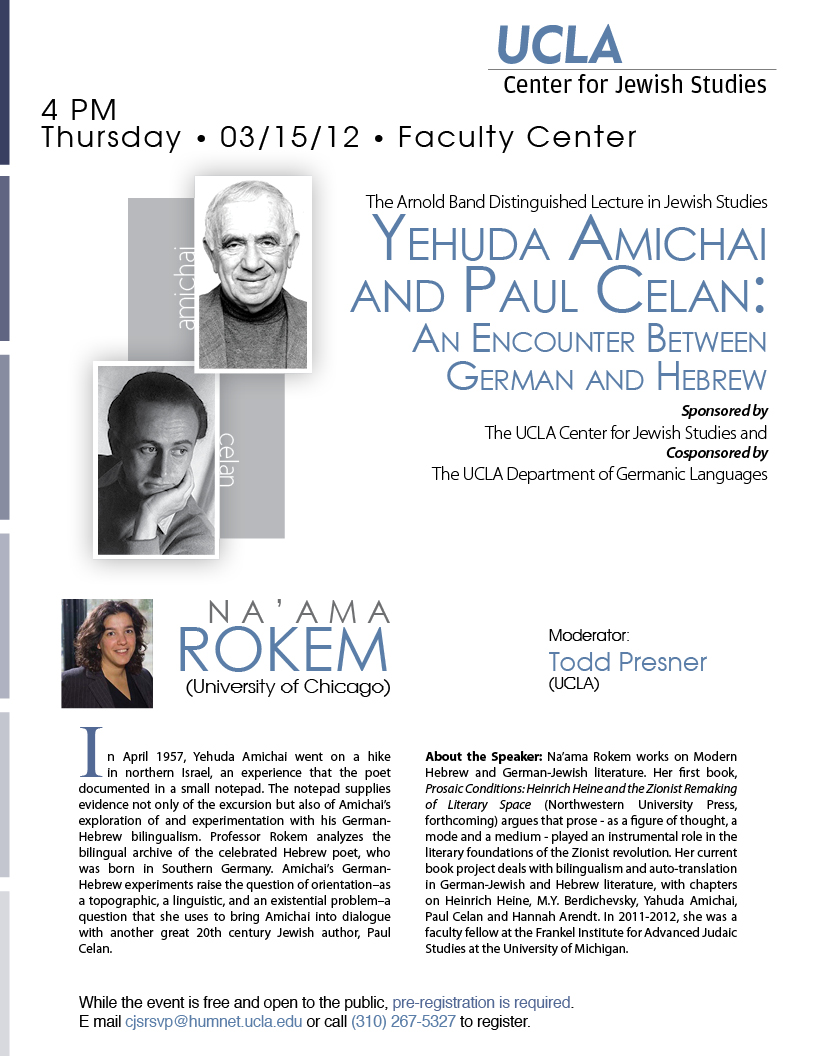
In April 1957, Yehuda Amichai went on a hike in northern Israel, an experience that the poet documented in a small notepad. The notepad supplies evidence not only of the excursion but also of Amichai’s exploration of and experimentation with his German- Hebrew bilingualism. Professor Rokem analyzes the bilingual archive of the celebrated Hebrew poet, who was born in Southern Germany. Amichai’s German- Hebrew experiments raise the question of orientation–as a topographic, a linguistic, and an existential problem–a question that she uses to bring Amichai into dialogue with another great 20th century Jewish author, Paul Celan.
About the Speaker: Na’ama Rokem works on Modern Hebrew and German-Jewish literature. Her first book, Prosaic Conditions: Heinrich Heine and the Zionist Remaking of Literary Space (Northwestern University Press, forthcoming) argues that prose – as a figure of thought, a mode and a medium – played an instrumental role in the literary foundations of the Zionist revolution. Her current book project deals with bilingualism and auto-translation in German-Jewish and Hebrew literature, with chapters on Heinrich Heine, M.Y. Berdichevsky, Yahuda Amichai, Paul Celan and Hannah Arendt. In 2011-2012, she was a faculty fellow at the Frankel Institute for Advanced Judaic Studies at the University of Michigan.